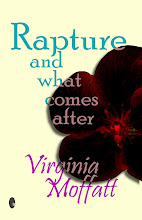Sunday 3 October 2010
Rave Review - "The Writer's Tale" by Russell T. Davies
It's not often that I read a book I love so much I can't put down. And I've never ever put one down and started blogging about it straightaway. But "The Writer's Tale" by Russell T Davies (former front runner for Dr Who) is just so brilliant that I have to tell you about it. I've been dithering about getting hold of a copy for ages now. I knew I'd enjoy it but the £30 price tag has been a tad off putting (For goodness sake BBC, some of us struggle to fork out half that for a book). So yesterday, when I saw it in the library, I grabbed it with both hands. And have been pretty much reading it ever since.
I've blogged about the great RTD here, which gives you an insight into why I love his work so much. What makes "The Writer's Tale" so special for me is that it is a treat for me both as a fan and as a writer. The book is basically a series of emails between Davies and the TV journalist Benjamin Cook. It begins by Cook asking whether Davies would be prepared to talk about how he writes an episode and quickly becomes the story of how The 2007 Christmas Special, and 2008 Series 4 are written. Seeing the ideas first form and change is absolutely fascinating. For several months Davies and Cook correspond about the new companion, Penny Carter, and then suddenly there is an option of Catherine Tate returning as Donna. Out goes Penny and Davies has to quickly think how/why Donna comes back, though using some of the same material. Only he and Cook ever know Penny existed and both are a little sad at the "demise" of this unwritten character. Yet when Series 4 is complete, Cook pays the ultimate compliment that Donna was way better than Penny would have ever been. (Interestingly enough the name stays as a journalist who gets caught up peripherally in the events of Episode 1).
Similarly we see Davies struggle with narrative points in the Series Finale. Why will Donna have to leave the TARDIS? (He comes up with a brilliant solution).How does he get all the companions from various places to be with the Doctor at the end? how does he get Rose to go off with Doctor 2 without it undermining her first departure? This last one is particularly interesting as most viewers felt that it didn't quite work. Davies is honest enough to realise he'd written himself into a corner when he'd come up with the idea of 2 Doctors and then made it central to the finale's resolution. He writes and rewrites the scene, and though the final version is better than the first - it's still a bit of a miss. But you have to admire him for trying.
The other thing that is interesting is how difficult he finds it to write. You'd think a writer of his stature and experience would find it easy. Yet it seems like he flies by the seat of his pants every time, procrastinating all day and writing into the middle of the night, right up to the morning of production. That's either depressing or encouraging to writers like me. I'm an optimist so I'll take encouraging every time. And he's honest and sometimes quite impossible, and arrogant, yet also deeply humble. In a very long email he completely dissects his own behaviour at the BBC launch of the Titanic episode and is disgusted with the false notes he plays. I find that very heartening and human.
Finally, I love this book because it ISN'T prescriptive. Davies cut his teeth in script writing years ago. He doesn't need to be taught, because he's worked out for himself there are natural pauses that make a 3 Act structure. I like the fact he kicks against us needing to read Robert McKie to write. I do love the Robert McKie book too and found it useful, but it's refreshing to hear a successful writer say they're not bound by it. The book ends with a quote about gaining your writing voice that sums it up perfectly:
"Gaining a voice, whatever that is, comes with experience and practice - and the writing, again, is indivisible from the person. Your voice tends to be something that others talk about, about you. It's not something that you think about much yourself, and certainly not whilst writing. I never - never - sit here thinking, what's my voice? You might as well ponder, who am I? It is, in fact, exactly the same thing. You can wonder your whole life and you'll never get an answer to that."
This is a great read - I hope your local library has a copy.
Subscribe to:
Post Comments (Atom)


No comments:
Post a Comment